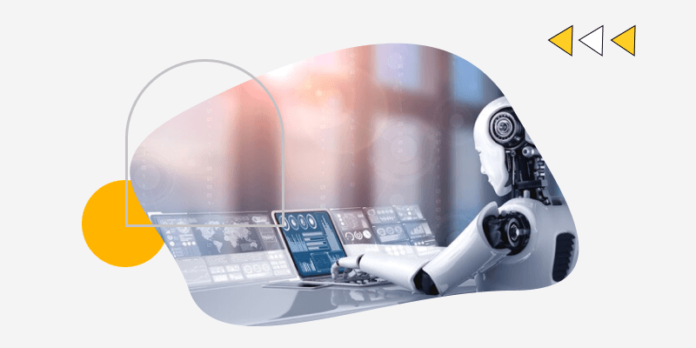Artificial intelligence, or AI, may have once been the subject of countless sci-fi movies.
But now, it’s a feature most tech companies use on a near constant basis.
AI can allow machines to learn more about humans and how we behave.
That’s become incredibly useful to marketers, who want to gain more detailed insight into what customers are looking for.
It’s not surprising, then, that 40% of marketing and sales departments utilize AI technology and machine learning to reach their goals.
But why exactly should you consider using AI in your marketing? And how can AI technologies be applied? We’ll take a closer look at those answers below.
What is AI Marketing?
First, what exactly is AI marketing?
At its most basic level, AI marketing uses technology to mimic human-level intelligence within the scope of common marketing tasks. It essentially speeds up different processes while learning and performing at a high caliber.
Rather than relying on human workers to complete certain marketing tasks, businesses can use artificial intelligence to complete those tasks.
While there are many ways to accomplish this, as we’ll discuss later on, AI marketing can be used to collect data, analyze customer behavior, predict consumer activity, and automate certain steps in the process.
In the end, AI marketing encompasses many of the same aspects of digital marketing – but it’s more streamlined and uses technology to improve results.
Why Use Artificial Intelligence in Marketing?
One main reason to use AI marketing is the cost savings it can provide. Efficiency is the name of the game with AI.
While some workers are nervous that a greater emphasis on automation and machine learning could eliminate their jobs altogether, the reality is that it merely eliminates unnecessary waste. When redundancies and inefficiencies are reduced through AI, employers can better distribute the resources they have and increase productivity overall.
Let’s say your business is currently spending too much time and money on your marketing strategy. Bringing on new hires might increase productivity, but it would also make costs go up. Likewise, eliminating an employee to save money would make your operations suffer.
By making use of AI technology, you can reduce the amount of time it takes to complete essential tasks without hiring or firing. You can then delegate more effectively and help your employees use their skills to work on tasks that do actually require human interaction or a more personal touch.
In many cases, this can actually improve employee engagement and reduce attrition. When you implement AI technology to handle the most repetitive tasks, your employees can dedicate more of their time to truly fulfilling projects. Since your team members won’t be bogged down with busy work, they can focus on innovation, professional development, or other tasks that can move both their careers and your company forward.
Another compelling benefit of AI marketing is that it may actually be more effective than human employees, in certain cases. This isn’t to say that your staff couldn’t handle these aspects of your marketing strategy; it’s simply that AI isn’t prone to human error.
Used properly, AI can potentially remove unconscious bias or help you avoid simple mistakes. Not only can this allow you to better protect your brand, but it can further your goal of cost reduction and improve upon overall efficiency. It could even create a more psychologically safe workplace, as employees can take more ownership over their roles without worrying about being blamed for an elementary error.
It’s worth noting that AI marketing is also extremely versatile. Artificial intelligence can easily be incorporated into a variety of marketing strategies. These technologies are more affordable than ever, thanks to their prevalence, which means you can often take advantage of AI even on a limited marketing budget. And as we’ll see below, AI can fit in seamlessly within a number of different contexts.
Finally, AI can help you grow your business. Artificial intelligence technologies can provide you with better data that you can then use to make better decisions. You can take a lot of the guesswork out of the equation and make moves based on provable insights. You’ll get to know your customers on a deeper level, which means you’ll be at an advantage in a crowded marketplace.
When you gain a clearer understanding of what consumers want, you can bridge the gap and provide the solutions they need. Instead of throwing things at a wall to see what sticks, you’ll have clear information to guide you on your growth journey.
How is AI Being Used in Digital Marketing?
Now that you know why AI is used, it’s time to learn how AI is used in the marketing sector.
The sky truly is the limit here. As technology continues to advance, we’ll no doubt see new developments in AI marketing. But so far, here are some of the most common areas where AI can be a real game-changer.
Personalized Email Marketing
Most of us get tens or even hundreds of new messages in our inboxes on a daily basis.
While email marketing can be quite effective, it’s no longer sufficient to send out a generic email.
If you fail to personalize your email blasts, that’s the equivalent of addressing a flyer to “current resident.”
More than likely, that message is going to end up in the trash bin.
Personalized emails, on the other hand, have a much higher probability of being read. According to Backlinko statistics, emails that have personalized subject lines are 26% more likely to be opened by the recipient.
AI technology offers a way to personalize your email marketing without having to resort to manual data entry.
Not only can automation allow you to personally address every email, but AI can help you gather information about your customers and their behavior.
This means you can easily send emails that are tailored to each customer’s location, age, gender, browsing or shopping history, and other preferences. Taking a more granular approach to personalization can result in higher open, click-through, and conversion rates – making your email marketing campaigns far more successful.
Customer Service Chatbots
Customer service is a crucial part of any business – and it’s not limited to when you’re actually open.
These days, consumers expect to get support at any time, day or night.
That can be a challenge for many brands, but AI-powered customer service options can ensure you don’t miss an opportunity to connect.
Chatbots can be a great way to solve customer problems, but they can also further your marketing efforts.
Because these features are seen as more personal than pop-ups, chatbots can help you learn more about your customers without driving them away.
Chatbots can interact with your customers and prompt them to volunteer information about their shopping habits. You can then use the data you gather in your other marketing activities.
That means you’ll be able to create personalized content specifically for each customer and gain valuable insights that can increase conversions or brand loyalty.
Best of all, you won’t have to rely on your customer service representatives to handle these conversations themselves. You can utilize these resources where they’re actually needed and depend on AI technology to gather the data for you.
AI-Generated Content
We mentioned above that chatbots can provide insights that will beget more personalized content creation.
But that’s not the only way you can use AI to develop marketing content.
You can actually use machine learning to publish content on your website, on social media, in local listing directories, and on other platforms.
This isn’t to say you won’t still need human content writers and editors. As of right now, AI still has its limitations. Without the skills of a real-life writing professional, your content might contain unnatural language that might send customers running the other way.
But AI can create certain kinds of content or provide a foundation for your content creation strategy. According to data cited by the Content Marketing Institute, 20% of all business content was expected to be AI-generated by 2018.
Business descriptions, client reports, data insights, information recaps, email blasts, and even social media posts can be authored by machines to great effect.
Currently, you probably won’t want to publish a blog post that was written by a robot – at least, not without a good once-over. But for many other kinds of content, AI can speed up development and actually boost results.
Unique Website Experiences
Some business owners might not realize that web design and digital marketing go hand-in-hand.
You can pour thousands of dollars into your marketing strategy every month. But if your website doesn’t provide what customers are looking for, you’ll end up wasting your money.
In order to get the most out of your marketing efforts, your website needs to be easy to navigate and visually appealing.
But that’s not all. You can also use AI to provide a more personalized website experience for your visitors.
Using an AI-powered website algorithm can provide customers with the deals that best align with their demographics and browsing history. Many websites also utilize push notifications, which can be further tweaked for personalization.
Simply put, AI can analyze what customers have shopped for in the past and deliver content that fits their preferences. This can improve brand perception and conversions, as customers can easily find what they’re looking for and may even forge a deeper connection with your business.
Ad Testing and Monitoring
Digital ads are likely an important part of your marketing strategy.
Online advertising can be effective, but it can also be time-consuming.
Although most display and PPC ad campaigns are still managed by human team members (or outsourced agencies), AI-powered advertising can help you diversify the ad platforms you use and even improve your targeting.
Machine learning can help you test your ads more effectively and discover the best ways to structure your ads and write copy that converts. AI can also allow you to bid on programmatic advertising space. Since programmatic ads allow for more specific segmentation and are purchased via automation, you can expect a better payoff with these ads while conserving your resources for other aspects of your strategy.
Wrapping Up: Should You Consider AI Marketing?
From this post, you know that AI marketing can reduce costs, increase efficiency, and generally improve your ability to grow your business.
But does that mean that every marketing strategy should include artificial intelligence?
Not necessarily. But whether you’re a small startup or a growing enterprise, AI can fit into your marketing plans. And if any of the following signs sound familiar, you may want to put it at the top of your to-do list.
Your business may be ready for AI marketing if…
- Your decisions aren’t based on data
- You’re gathering data manually
- You’re making lots of little mistakes with your marketing
- You’re unable to hire but can’t afford to lose staff
- Your team’s talents are being wasted on monotonous tasks
- You’re overspending on your marketing plans
- You’re worried about your business being left behind
The truth is that AI marketing, and AI in general, is becoming more popular with each passing year. What started off as a far-fetched idea is now commonplace. And if you don’t take advantage of the technologies available to you, your business may not have room to grow – nor will you be considered a leader in your industry.
Currently, AI marketing isn’t standard across all businesses. But it’s certainly becoming more normalized. By adopting this technology now, you can develop a more effective strategy and pave the way for others in your niche.








